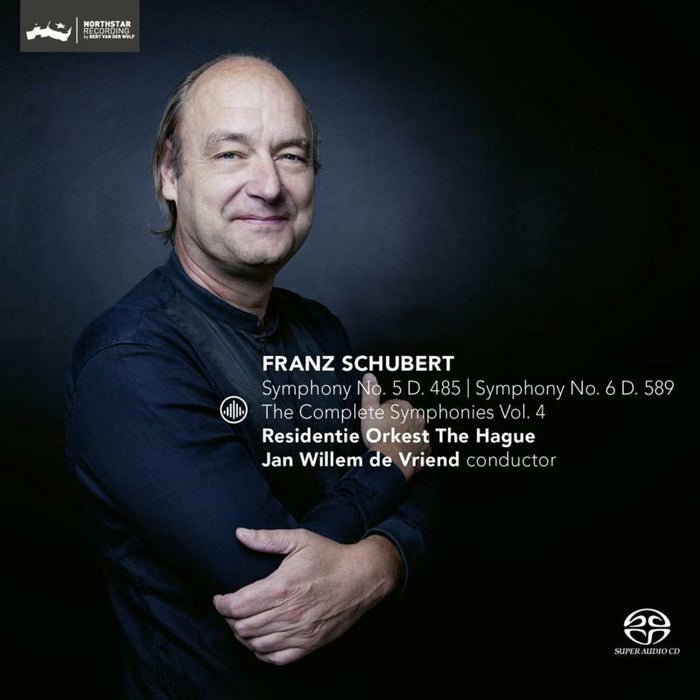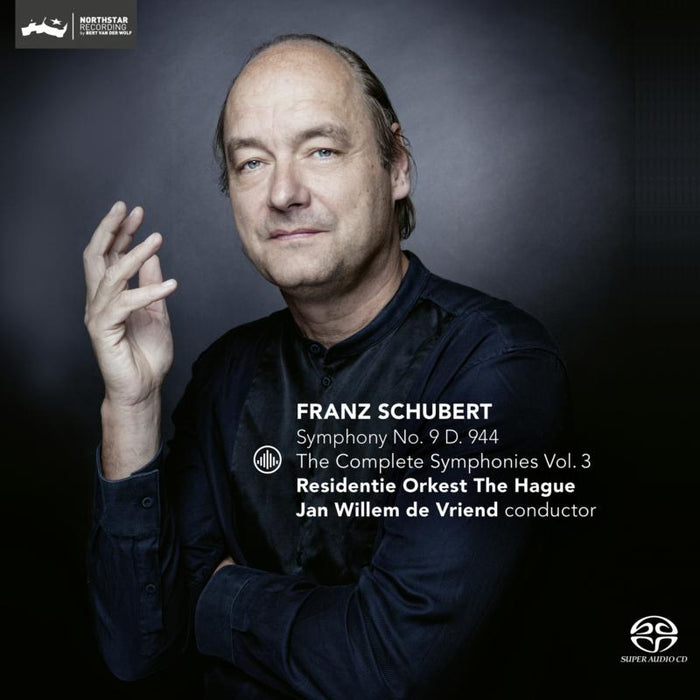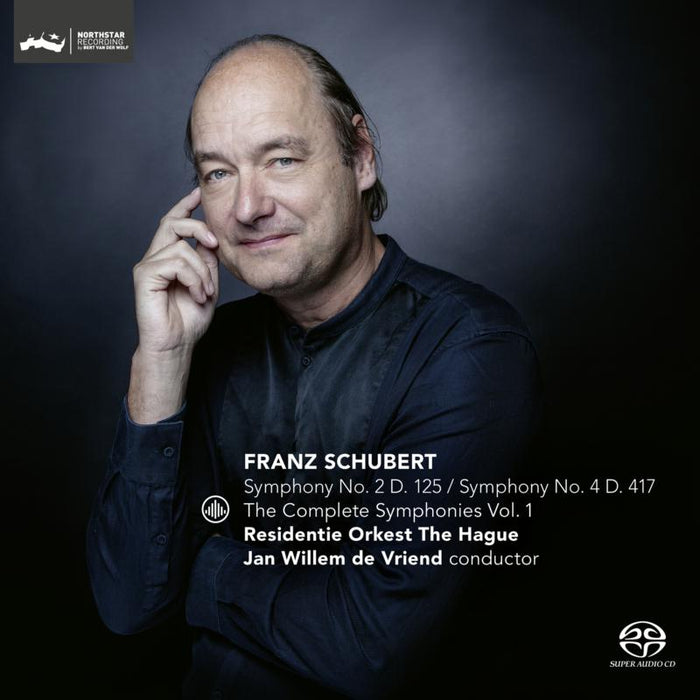Description
This is the second volume in de Vriend's complete survey of Schubert's symphonies and includes two youth symphonies (nos. 1 and 3) and the masterpiece that is the "Unfinished" Symphony No.8.
While offering little suggestion of the symphonic mastery he would attain less than a decade later, the First Symphony, influenced by Mozart's last symphonies and completed in October 1813, is a remarkable achievement. Schubert composed his Third Symphony over a period of about two months, completing the work in July 1815. The Third Symphony is generally characterised by an increased rhythmic intensity, at times bordering on obsession. We may well think of Schubert primarily as a wonderful melodist, but driving, sometimes overpowering rhythm is just as strong a feature of many of his greatest works. The question of why Schubert left this B minor symphony unfinished has continued to exercise scholars. The most convincing explanation is that he simply found himself unable to continue on the same exalted level and resigned himself to leaving the symphony as it was – two movements of breath-taking quality and imagination. There is no evidence that he ever wished, in his remaining six years, to return to the work, or that he regarded it as "unfinished". Beethoven's influence on the historic development of the symphony was staggering. His own examples, widening the expressive range of the genre, opened up a new world. Against this background, Schubert conceived a work of much greater poetry, drama and profundity than he had attempted in his previous symphonies. Over-familiarity may well have blunted our appreciation of this symphony, which is strikingly original from almost every aspect. Apart from the concentrated, expressive quality, there is also a greatly enhanced sense of tone-colour, with much richer sonorities, and a new spaciousness.
Residentie Orkest The Hague has the reputation as one of the finest orchestras in Europe makes it an appropriate figurehead for The Hague as a cosmopolitan city of justice, peace, and culture. The orchestra performs concert series in the Zuiderstrandtheater in Scheveningen and in addition performs at venues such as Concertgebouw Amsterdam, TivoliVredenburg Utrecht and De Doelen in Rotterdam. The Residentie Orkest performs regularly at various other major concert halls abroad. Tours have brought the orchestra to New York, Boston, Chicago, London and Vienna amongst others and the orchestra also performed in countries like Japan, China, Germany, France and South America. There are also many prolific collaborations with a wide range of partners, including the Dutch National Theatre, Gemeentemuseum and the Dutch National Opera. Recent seasons have seen a much acclaimed production of Messiaen's rarely performed opera Saint François d'Asisse, Poulenc's Dialogues des Carmélites and Puccini's La Bohème and Madama Butterfly.
Jan Willem de Vriend was appointed as principal conductor of Residentie Orkest The Hague in 2015 and as principal guest conductor of the Orquestra Simfonica de Barcelona i Nacional de Catalunya. From 2017 he has also been principal guest conductor of the Orchestre National de Lille.


















